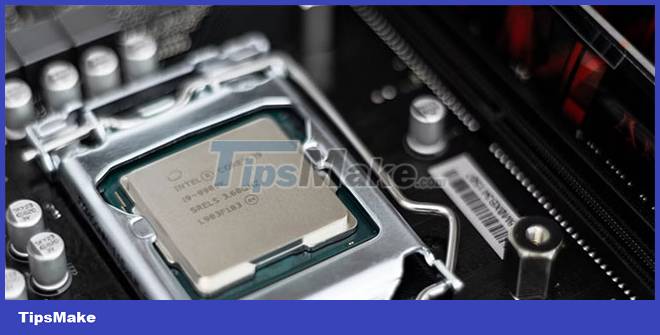What's the difference between Intel Core and Intel Core X CPUs?
It quickly became Intel's flagship product line, surpassing the Pentium and pushing PCs to the next level. However, since the launch of this product line, it has been split into two different branches - one of which is much more expensive than the other.
This begs the question: What are Intel Core and Intel Core X? What's the difference between them? And is Intel Core X worth the extra money?
Why are separate chips needed?

The reason why there are different chip lines is simple. Everyone has different needs. Some users need these features, but others do not. In the field of computers, there are common consumer chips that can be used by everyone, from casual users to the most demanding gamers. But when you're starting to dive into the workstation realm, you need to get through some of the heavy workloads that a normal chip might struggle with.
For this goal, you need to switch to another category - workstation chips. That range is where the Intel Core X stands, and that's what sets it apart from the regular Intel Core.
Intel Core: The Chip for Everyone

First of all, we have the good old Intel Core chip, the classic that everyone knows.
Since 2010, the Intel Core lineup has included Intel Core i3, i5, and i7, and since 2019, Core i9 has been added. Despite being consumer chips, they've become quite powerful, to the point where they can handle multithreaded tasks if you're aiming for the higher end chips.
Even so, there is a reason why Intel makes more expensive series of chips. These CPUs have a smaller socket, and they may also lack things like core counts for certain users. The Intel Core i9-12900K is the best chip in Intel's range right now, and the one with the most cores, but even then it only has a maximum of 16 cores, divided into 8 performance Golden Cove cores and 8 cores. Effective Gracemont (commonly known as E-Cores and P-Cores).
They are the best options for certain tasks, especially gaming, productivity, and everything the average person would do on a PC. But for certain things, users need more than that. This is where Intel Core X comes into play.
Intel Core X: Chips for professionals

Intel Core X stands for "Extreme Edition". The first Intel Core i7 Extreme was released in 2010 alongside other Intel Core consumer chips. Besides the Core i7 X-series, we also have the Core i9 X-series. In fact, this is the first time we've seen a Core i9 - it first debuted in 2017 alongside Intel's 7th generation chips, before being introduced to consumers in 2019 with the Core i9. -9900K.
There are a few notable differences between Core X and Core chips, in the number of cores.
The first Intel Core i7-980X came with a hexa-core setup, which was formidable at the time. Currently, the latest X chip, the Intel Core i9-10980XE, comes with a massive 18-core and 36-thread setup. The other notable difference lies in the socket, where the Intel Core X comes with a larger socket than what Core chips typically have - but not as large as the socket in the server chip.
However, they also have certain disadvantages. They're great for workloads that benefit from having multiple cores, so if that's what you're looking for, it might not be a bad idea. On the other hand, while tasks like gaming are perfectly doable, games won't run as well on Core chips because those chips have fewer cores but are faster.
Should I buy Intel Core or Intel Core X?
There's one other thing to mention: These X-series chips haven't been released in a while. To be precise, the last time we saw an X-series chip launch was with the Core 10 generation of CPUs, in 2020. Even then, they still carry an outdated architecture, with the X-series world. 7th and 9th generation. uses the Skylake-X architecture and the 10th generation chips use Cascade Lake, which is not an upgrade anyway.
Furthermore, Intel has made it clear that, at least for now, there will be no more Intel Core X CPUs. In August 2020, keen-eyed Intel fans on the ASUS ROG forum spotted slides in an Intel presentation suggested that there would be no more Intel Core X CPUs for that year - and indeed, we haven't seen a Core X CPU since.
Intel Core chips are a no-brainer now, even for productivity things, as they now have more cores.
The Intel Core i9-12900K, as mentioned before, comes with 16 cores and 24 threads, making it a good choice for multi-threaded tasks and a powerful CPU.
Now, if Intel Core X has a new release soon, it might be worth looking into because, at the top tier of CPU production, the margins could be worth it to your device.
Intel Core X is not worth it at the moment
Right now, if you're buying an Intel Core X-series CPU, it doesn't make a lot of sense - if you need a lot of cores, I'd really recommend lowering your expectations and opting for an Alder Lake or Xeon chip. or go straight to AMD and choose a Threadripper or Epyc CPU. In 2022, things should be fine with any of those options than with X-series CPUs.
As for the non-X Core chips, they are clearly Intel's main priority right now and will continue to improve in the years to come.